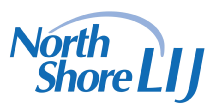


![]()
ONLINE

Where Inclusion is a Chief Priority
Editors’ Note
Jennifer Mieres assumed her current post in July 2010. In addition, Mieres serves as a nuclear cardiologist on the faculty of the North Shore-LIJ Health System. Mieres, who has a strong track record as a patient and community advocate, was recruited from the New York University Langone Medical Center in Manhattan, where she served as Director of Nuclear Cardiology, a position she held previously at North Shore University Hospital in Manhasset, New York. Mieres is a co-author of the 2008 critically-acclaimed book, Heart Smart for Black Women and Latinas: A 5-Week Program for Living a Heart-Healthy Lifestyle. She is an active volunteer with the American Heart Association (AHA), serves as a national spokesperson for the AHA’s Go Red for Women movement, and is the Chair of the AHA’s Professional Education Committee. Mieres is the immediate past President of the American Society of Nuclear Cardiology (ASNC) and was the organization’s first female President. She continues to be an active board member of ASNC and serves on its Executive Council.
How critical is diversity and inclusion to the culture of the North Shore-LIJ Health System brand?
As President and CEO, Michael Dowling is committed to providing excellent patient care and fostering a health care environment that supports principles of equity, diversity, inclusion, and effective communication to improve the health of the communities served by the North Shore-LIJ Health System. I share his passion for excellent health care for all people and I truly believe in empowering patients to be 50/50 partners in their health care management.
Over the past decade, North Shore-LIJ has grown from a small health system to one that is now 15 hospitals, serving a growing multicultural population of more than eight million. In June 2010, the health system received approval to open the Hofstra North Shore-LIJ School of Medicine and admit the inaugural class of future physicians in the summer of 2011. The addition of a medical school increases the prestige of the health system, placing us on the national map and in a new league. Therefore, in developing his strategic plan for the next decade, Michael Dowling recognized the need to expand the health system’s existing diversity initiatives and formalized his commitment by establishing an Office of Diversity, Inclusion and Health Literacy. One example of the health system’s diversity and inclusion initiatives is the ongoing Administrative Fellowship Program that was started six years ago with the mission of training a multicultural group of future health care leaders.
I am honored to have the opportunity to lead a team whose mission is the continued advancement of the health system’s commitment to the delivery of culturally sensitive care to our diverse populations. As we embark on the journey to train physicians of the future, the recruitment and retention of a culturally diverse, culturally sensitive, and well-trained health care workforce is essential for our continued achievement of excellent patient care and outcomes. Diversity, inclusion, and effective communication through health literacy are three important tenets that are critical to providing high-quality, culturally and linguistically appropriate patient care.•